успешных поступлений
университетов и бизнес-школ мира
странах работают после учебы наши выпускники
успешных поступлений
университетов и бизнес-школ мира
странах работают после учебы наши выпускники
Level 4
Units at this level provide you with a sound conceptual, knowledge and skill base for the study of the subject. A programme of studio projects, lectures, seminars, visits, case studies, guided reading and tutorials will be used to disseminate information and concepts and to develop your understanding of the subject. Considerable importance is placed on learning through practical experience within studio-based projects. These enable you to gain experience through learning by experimentation and discovery and provide opportunities for you to develop abilities within through individual work and group interaction. These projects are also the method for demonstrating your integration on skills and knowledge from specialist units.
Projects are monitored primarily by group reviews where you present your work to a number of your peers and the tutors. The Course Team regard this method as a most effective technique for maximising student understanding and motivation, and as an excellent preparation for the presentation of ideas to guests, and visiting tutors contributing from practice. You will receive individual tutorials to quantify your progress and attainment level.
Level 4 provides you with the creative, intellectual and practical skills upon which you will build. The link between theory and practice will be evident through all units. Units in the first level of the course provide an introduction to the fundamental skills and knowledge of the subject. The parallel issues of study are architectural design, technology (realisation), communication and cultural context. Projects allow you to demonstrate both specialist knowledge and the integration of knowledge in architectural propositions.
The theme at this level is Roots of Invention: Architecture and Material Culture. Three units establish some fundamental issues in architectural design: Material Ideas and Inhabitation, Nature and Living, and Making and Thinking. You will start by exploring forms of representation and manipulation of architectural form by model, graphic, photographic and digital means. Small scale individual and group studio projects allow an exploration of the methods of realisation, including the conventions of architectural drawing as a means of communication and methods of construction. You will broaden your understanding of both historical and contemporary precedents in architectural design. The final propositions will demonstrate your ability in integrated architectural design. Contextual Studies provide a broader understanding of your subject skills in research, analysis and criticism, communication and dialogue, and of inter-related specialisms.
Level 5
Level 5 units build upon the studies in Level 4 and provide you with increasing opportunities for student-centred learning. Level 5 units anticipate that you will be able to apply the knowledge, concepts and skills addressed in Level 4 to exploit fully the range of available resources towards your personal creative development.
Level 5 studies continue to increase your professional competence through the development of skills, knowledge and understanding. Project work, although having defined aims and objectives, will allow you to decide upon personal solutions for architectural propositions. Visiting lecturers and subject specialists will be invited to contribute their knowledge to your development. Reviews continue as a strategy for reinforcing communication, dialogue and group learning.
Level 5 explores the making of architectural propositions in the context of Urban Interventions, through three further units: Urban Context, Use and Form, and Future Scenarios. You will build on the making experiences of Level 4 by exploring the issues of building in an urban context through architectural intervention projects at various scales. This will include the measurement, research, analysis, and representation of an urban site.
Through an informed understanding of context, you will propose innovative and thoughtful interventions to house public, convivial activities associated with the economic and physical opportunities of the local urban context.
You will extend your knowledge of the realisation of architectural propositions through the study of construction, structure and environmental control. The special technical issues of building with existing buildings and their role in a sustainable city will be considered.
Your communication skills will be developed, added to, and applied in the research, analysis, and development of an existing environment and the making of an architectural proposition. Theory and history will inform the understanding of cultural context. These units will develop your research and analytical skills.
Level 6
In Level 6 you must take considerable responsibility for your study, within the context of a project group and a nominated tutor.
Negotiated Learning Agreements are the principal means of defining your learning goals and monitoring your progress and achievements. Level 6 studies provide the opportunity for you to extend your interests and abilities and demonstrate your capacity for sustained independent and professional work.
The level culminates in the Comprehensive Design Project, where you will demonstrate the integration of accumulated knowledge, skills and abilities whilst also encouraging you to demonstrate your analytical and creative abilities, critical awareness, motivation and resourcefulness. The project anticipates and introduces many aspects of professional practice, including interdisciplinary and transdisciplinary, in parallel with the Practices Unit.
Level 6 explores the theme of Social Practice. The first phase of study will invite you to deepen your understanding of realisation through Research by Making, of materials, fabrication and expression. This will provide a context for the development of conceptual and practical skills, and allow the exploration of personal creative concerns in architectural thinking and making. An extended text will provide the context for you to demonstrate skills in research and analysis, and broaden your knowledge of architectural thought past and present.
Following a period of exploration and research, a comprehensive design proposition will be made through a single architectural challenge. Methods of shaping the built environment will focus on contemporary issues of architecture, responding to the social context of architectural practice. The role of the architect will be considered alongside the motivations of clients, development, construction, planning, legal regulation, other creative practices and wider social, economic and cultural values. The vehicle for this consideration will remain a physical proposition for built form, and include the integration of the various service requirements, an understanding of construction processes and factors informing the realisation of architecture. You will demonstrate the necessary skills in both drawings and digital media (including CAD) and the year will conclude with the production of a portfolio of work which will prepare you for employment or postgraduate study as well as providing a qualification with transferable skills suitable to the wider creative industries.
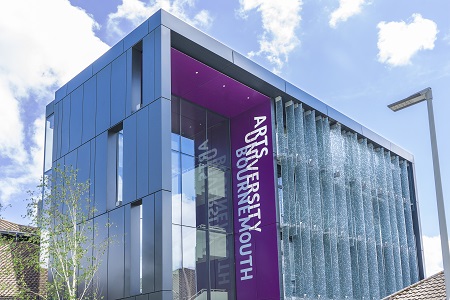
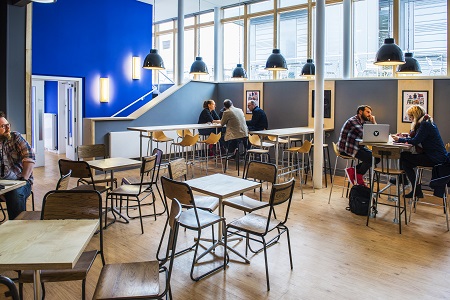
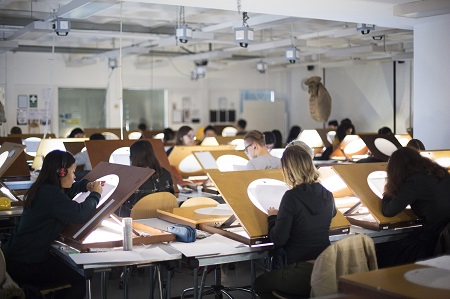
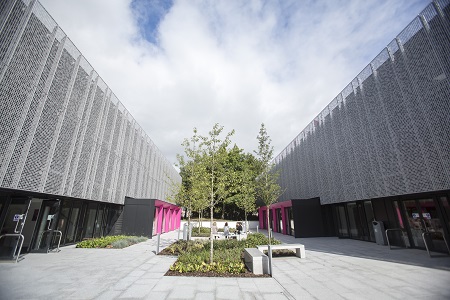
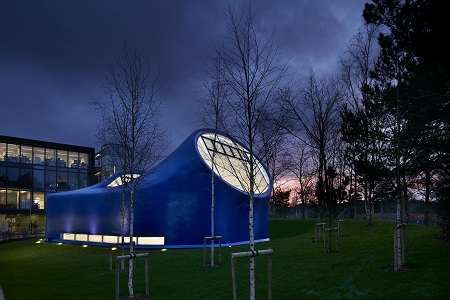
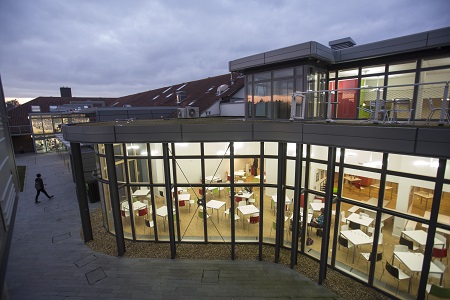
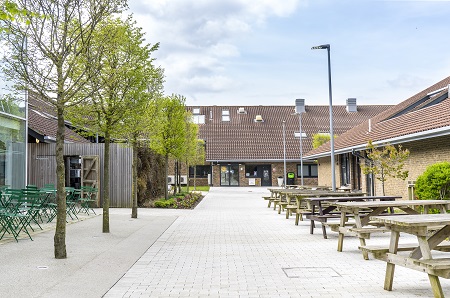
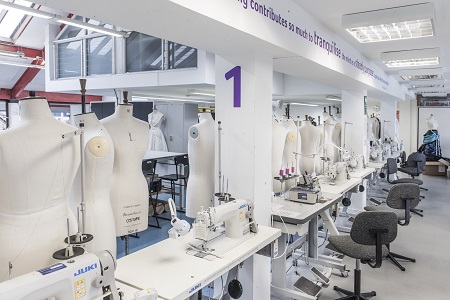
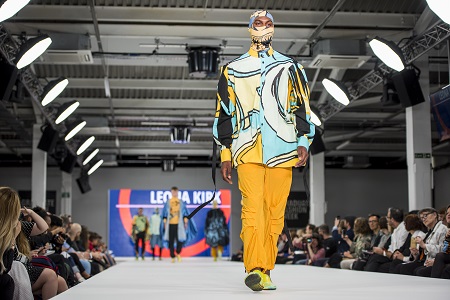
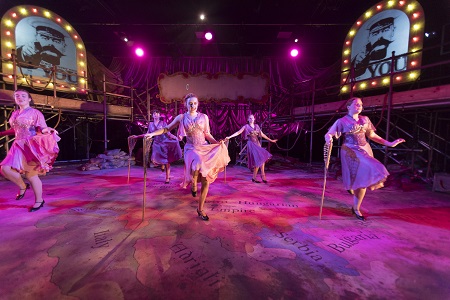
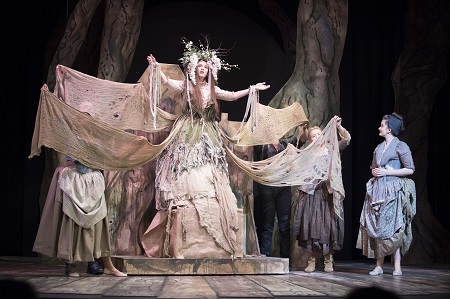
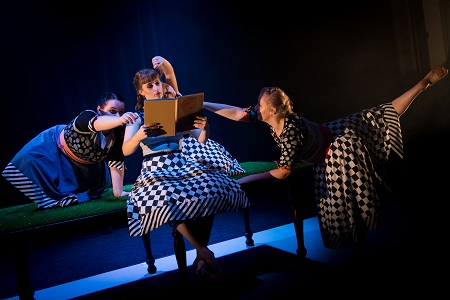
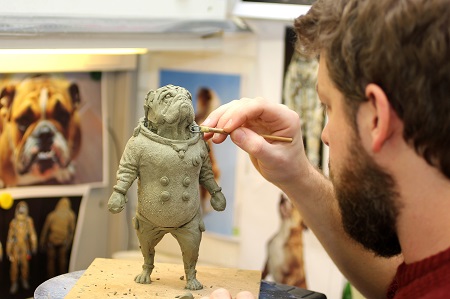
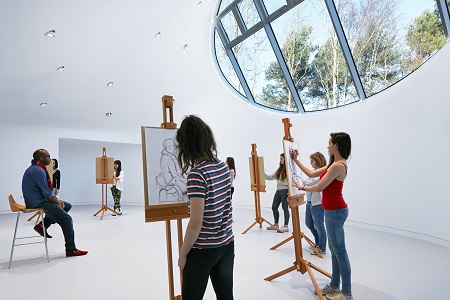
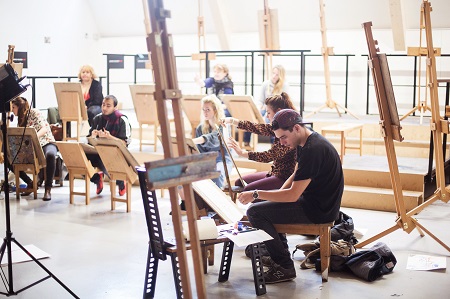
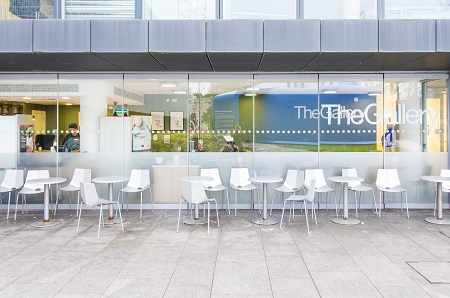
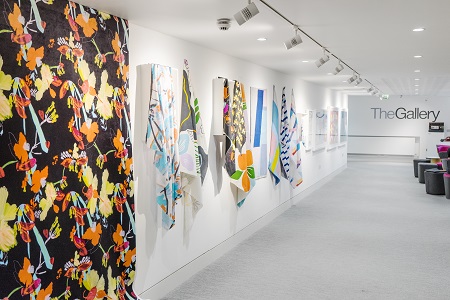
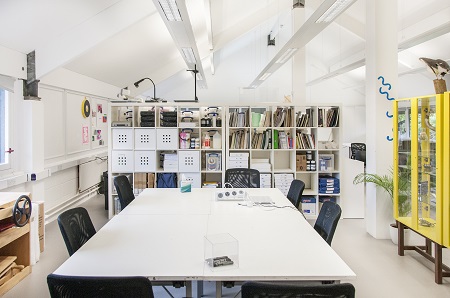
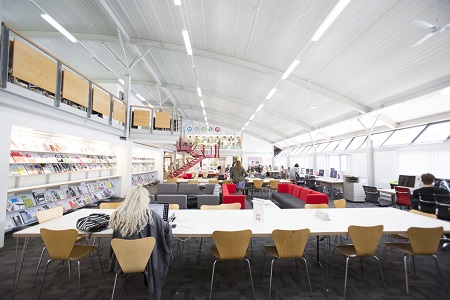

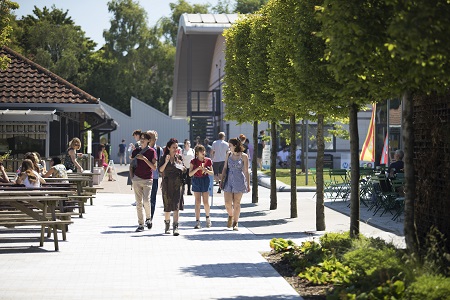
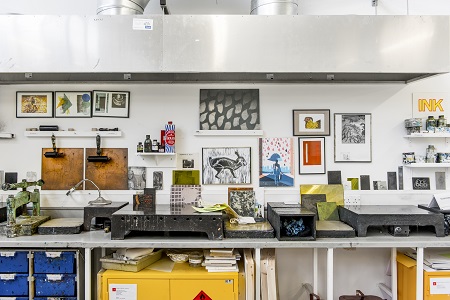
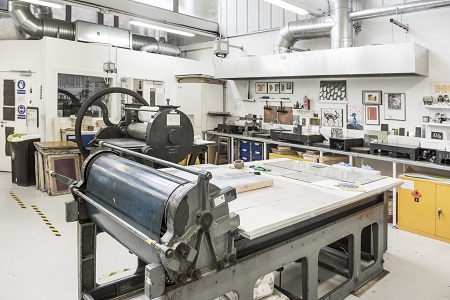
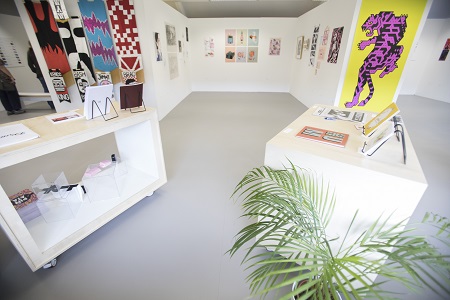
Борнмутский университет искусств расположен на южном побережье Англии, примерно в 3 км от центра Борнмута. Город имеет регулярное железнодорожное сообщение с Лондоном и другими крупными центрами.
Борнмут находится в самой восточной точке Юрского побережья, ставшим первым природным объектом всемирного наследия ЮНЕСКО на территории Великобритании. Кампус имеет собственное автобусное сообщение со сниженной стоимостью билетов. Университетский городок также может похвастаться отличной системой велосипедных дорожек.